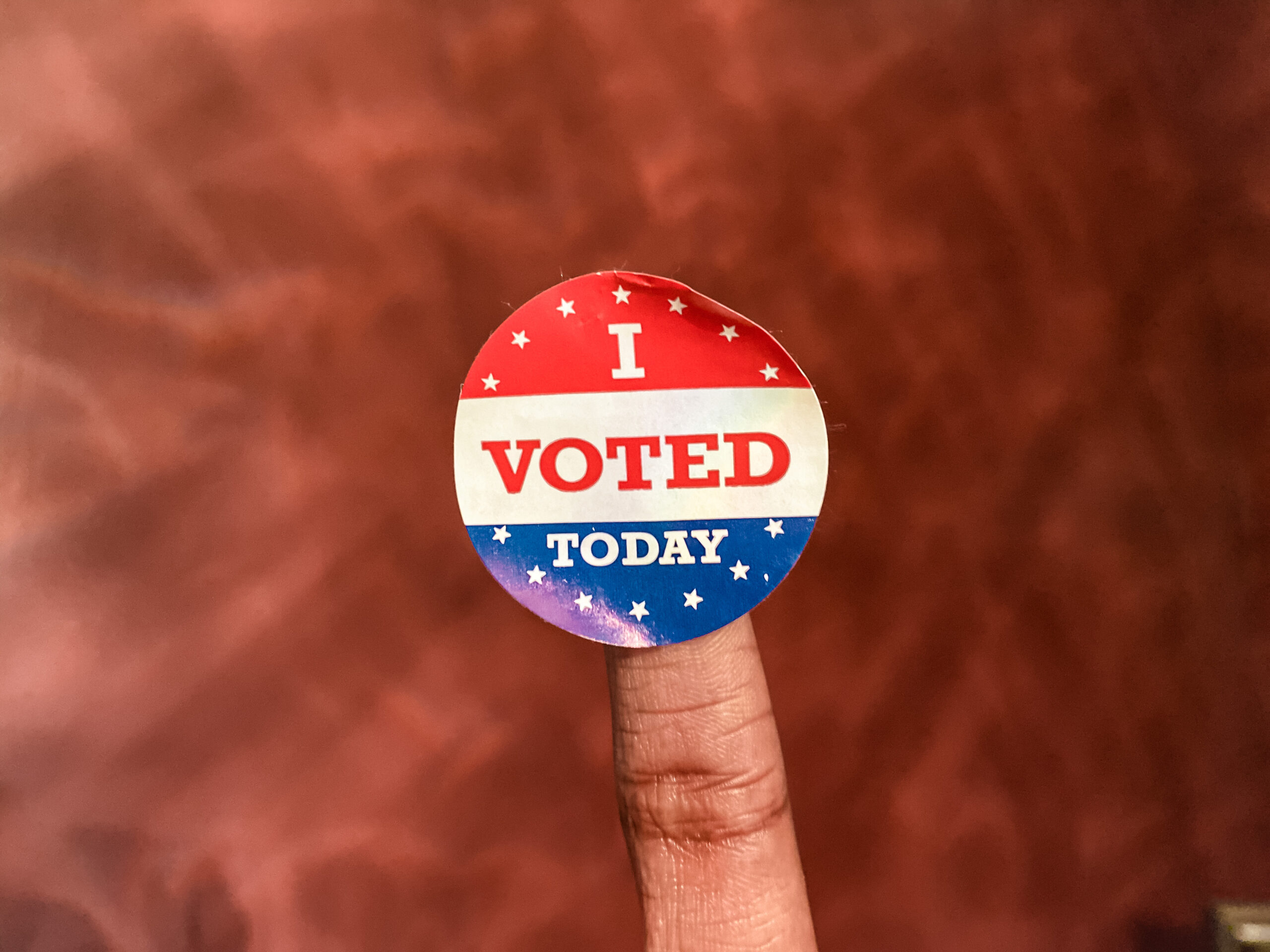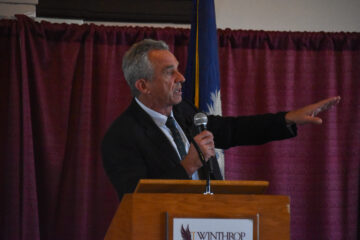For the first time in almost two decades, a democratic challenger is neck-and-neck in the race for a South Carolina senate seat, threatening to knock down longtime Republican incumbent, Lindsey Graham. The Jaime Harrison campaign raked in a record-smashing $57 million in fundraising from July to September, a fact that provides support for Harrison’s vision of a “New South” being built.
South Carolina has traditionally been a straight-ticket, deep red state. A Democratic governor hasn’t been elected since Jim Hodges in 1998, and election season after election season, the state elects Republican representatives and Senators. Then, two years ago, South Carolina’s first congressional district, encompassing much of the Charleston area, elected Democrat Joe Cunningham, signaling a shift in the appetite for Democratic representation.
I travelled to Columbia on Oct. 26 to attend Mr. Harrison’s Midlands drive-in rally and concert. Gleaming sedans, trucks, and vans parked behind Jaime Harrison yard signs in a grassy field behind Charlie W. Johnson stadium at Benedict College. By the time I arrived, just thirty minutes after the gates opened and a whole hour before the event began, the field was almost full. Within twenty minutes, the lines of overflow vehicles were piling into every parking lot available, tuning their radios to 90.1 FM, where the event’s sound was being broadcast to ensure all attendees could hear.
Despite strict Covid-19 safety guidelines requiring attendees to remain in their vehicles save for a bathroom break, the event felt energetic and welcoming. Masked Harrison volunteers of all colors, shapes, and sizes mulled about, offering swag and chatting with attendees through their open car windows. Charleston native Charlamagne tha God emceed the event and a number of Black South Carolina council members and representatives gave speeches, including Columbia Mayor Stephen K. Benjamin. The event also featured performances by a gospel group and concluded with a performance by award-winning rapper Common.
Though night had fallen by the time Jaime Harrison took the stage, attendees were far from tired, as a trumpeting chorus of car horns serenaded his much-anticipated entrance.
“My friends, things are changing in South Carolina. The winds of change are blowing and they are blowing through South Carolina,” he said, “and that is why on November 3 there’s going to be a lot of people shocked.”
Harrison acknowledged that many voters will rightly be fixated on the results of the presidential election.
“But my friends,” he said, “The real story of November 3 is… Oh my God, what happened to Lindsey Graham?”
Harrison spoke a bit about his background, a story of working-class struggle that must feel familiar to many South Carolinians. He was born to a teen mom, just 15 years old, and was raised by his grandparents, neither of whom had an education past the 8th grade.
“They didn’t have a whole lot of education and they didn’t have a whole lot of money, but they were rich,” he said. “They were rich in terms of their values. They taught me the value of working hard and they taught me the value of helping other people.”
Harrison spent a good deal of time attempting to draw a distinction between his own character and that of Lindsey Graham.
“It seems like our senator doesn’t understand the dignity of hard work. Because instead of working hard for South Carolina, he goes golfing with the President,” he said. “Lindsey Graham hasn’t had a town hall in South Carolina in over three years.”
With that, Harrison touched on the historical significance of his campaign, and furthermore, his intentions to make history.
“This was the seat of Strom Thurmond. This was the seat of John C. Calhoun. This was the seat of Ben “pitchfork” Tillman.” Harrison said. “South Carolina will become the very first state in history to have two African-American senators serving at the same time.”
The legacy held within that particular senate seat is bound by the chains of oppression and stained by the mark of those segregationists that came before, but Harrison has worked and campaigned to present a path forward for his community.
“We are going to close the book on the Old South, and write a brand new book called the New South,” he said. “A New South that is bold. A New South that is diverse. A New South that is inclusive.”
Jaime Harrison may very well lose his senate race against Lindsey Graham. In fact, by the time you read this, the election will already have been decided. But all may not be lost, and the promise of the Harrison campaign will still remain. The waves of democratic energization will continue to ripple across the lowcountry, up through the sandhills and to the highest peaks of the Appalachia, all whilst incessantly lapping at our coastal shorelines until election season rolls around once again.
Photo by Tate Walden




